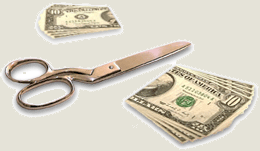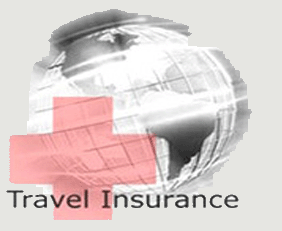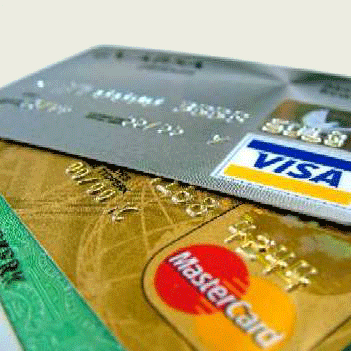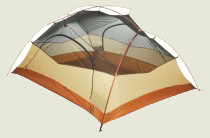Live Cheaply, Travel Longer
 Maybe
you're fed up with the daily grind and dreaming of 'getting away
from it all' for an extended period of time. Perhaps you've just
graduated from college and are considering a year out before settling
into the 'real world.' Maybe you've recently retired and finally have
the time to live your dreams.
Maybe
you're fed up with the daily grind and dreaming of 'getting away
from it all' for an extended period of time. Perhaps you've just
graduated from college and are considering a year out before settling
into the 'real world.' Maybe you've recently retired and finally have
the time to live your dreams.
You're sold on the idea of adventure bicycle touring. There's only one thing stopping you from hopping on your bike and riding off into the sunset: MONEY.
How much do you usually spend on a vacation? $50 a day? $100 a day? More?? At that rate of spending, most cyclists will be whipping out the credit card before they make it over their first mountain pass.
But,
with a little discipline, you'll be amazed at how little you can
spend on a bike
touring holiday--and without compromising any of the fun and adventure.
In fact, you may even find that traveling on the cheap is even more
rewarding.
your main expenses on a bike tour
Bike touring is a pretty simple way to live: you eat, you sleep, you pedal. Spending six+ hours in the saddle has the distinct advantage of keeping entertainment costs down. Who's interested in partying after having conquered two mountain passes or surviving a long slog through the desert? You're knackered and, unless you've got super-human endurance qualities, thoughts of your therma-rest and nothing more are dancing in your head.
The fact is, after you've purchased your bicycle and gear, financing a bike tour boils down to what you fork out for two items: food and lodging.
the food factor
For
a cyclist it's unthinkable to cut calories. You certainly can't
deprive your body of its fuel and expect your legs to keep cranking the
pedals for long.
What you can cut out is restaurants. Of course that means you're missing out on some of the cultural experience of tasting the local cuisine. It's a trade-off. Travel longer or indulge in a little paella or risotto on on the terrace of a snazzy restaurant once in a while.
The solution for most long-term travelers is to self-cater in countries where eating out is expensive (Europe and America) and indulge once they hit a low-cost country.
shop smart
But if you're not a smart shopper, spending on food could still gobble up a big portion of your budget.
The trick to keeping costs down is to stock up in advance and avoid impulse purchases.
While biking across America and Europe we always did our shopping at discount supermarkets. Buying in-house brands and items on special will cut between 30%-50% off your supermarket bill. Small town grocery stores, be it in California or Croatia, are notoriously over-priced.
At first you may find this 'penny-pinching' burdensome. Who cares if a candy bar costs $1,25 at the Kwik Stop or ˘75 at the Save-a-Lot? So what if the épicerie charges €3.89 for the same creamy Camembert that costs € 2.45 at the Lidl down the street?
The trick is to stay focused on your objective. You want to travel longer, right? Is it really such a hassle to carry a whole pack of granola bars rather than buying individual ones and that end up costing double? I know you'd like to wheel into the enticing Whole Foods Shop, and the Target Supercenter is a little off the path, but hey, they've probably got some free samples to make up for the inconvenience.
eating out in the developing world
Once you arrive in Guatemala or Morocco or Thailand-- or any other low-cost country in the developing world--it's time to indulge. But think twice before you slip into that tourist-type restaurant with the menu in English, German and French.
Today's backpackers are notoriously free-spending and even many 'budget spots' mentioned in the Lonely Planet bible will set you back a pretty penny. Take a look around town and find a place crowded with locals and you're sure to have good food at a fair price.
the biggest budget breaker of all
What will eat up your hard earned savings quicker than a hungry cyclist can down a plate of spaghetti? Accommodation.
You'll find that lodging can take a big bite out of your budget, even in many poor countries. You'd think that everything would be cheap in the developing world. It's not. Countries without a large middle class or a booming backpacker scene don't have hotels geared towards budget travelers. They will have hotels for expat workers, rich locals and well-heeled package tourists, but not for you--the cyclist on a budget--, who wants to spend less than 20 dollars a night on a room.
Accommodation
is relatively expensive in many African countries such as Zambia,
Botswana and Mozambique. Much of the Middle East, countries such
as Jordan, Lebanon and even Turkey, are no longer budget destinations.
And it goes without saying that hotels in Europe and North
America are beyond the means of those who are watching their finances.
Even
campsites, once an affordable option, can set you back
$15 - $40 per night depending on the
location and level of comfort.
So, what's the solution?
For us, it was a combination of 'free camping' and enjoying the hospitality of
hosts from Couchsurfing and Warm Showers.
Once we started using Couchsurfing regularly and free camping more often, we cut our average costs by about 40 percent, from around 10 euros per day per person to just 6 euros per day per person. We weren't cycling through countries where traveling was cheaper, we were just traveling more wisely.
There's no magic involved in living cheaply. Commit yourself to living below your means and you'll be astounded by how far your money will stretch. Before you know it, you'll be getting emails from friends and family who wonder if you're ever planning to return to a real job and a stationary lifestyle.
If you enjoyed this post, please spread the word and help us by sharing it with others via Twitter.
What are your experiences with keeping to a tight budget on a cycling tour? Any tips for cutting costs while you're on the road? Please share in the comments section below.

| Get World Biking Newsletter |
| Email: |
| |
If you enjoyed this post, you'll like these posts, too:
bike touring tips: managing money on the road | ||
 | ||
bike touring tips: how to find a safe place to sleep (for free!) |
check out more photos from our trip
contact us at: worldbiking@gmail.com





